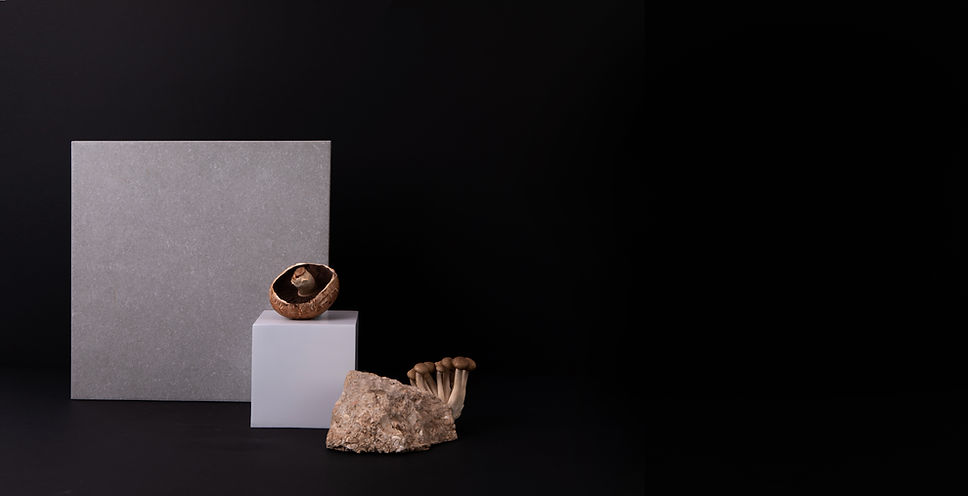
Depression remains one of the most prevalent and debilitating mental health conditions in the world. For many, traditional treatments such as antidepressant medications and cognitive-behavioral therapy can offer relief. However, these options don’t work for everyone. A growing number of individuals—especially those with treatment-resistant depression—are left searching for alternatives. One increasingly promising option is psilocybin therapy for depression, which uses the psychedelic compound found in certain mushrooms to reduce symptoms and improve mental well-being.
How Does Psilocybin Therapy Work?
Psilocybin is a naturally occurring psychedelic compound found in over 200 species of mushrooms, commonly known as “magic mushrooms.” When ingested, psilocybin is converted into psilocin in the body, which then interacts with serotonin receptors in the brain—particularly the 5-HT2A receptor. This interaction leads to a temporary state of altered consciousness, which may include changes in perception, mood, and cognition.
But psilocybin therapy isn't about simply inducing a psychedelic experience. In clinical settings, the compound is administered under the guidance of trained therapists in a controlled environment. This therapeutic framework helps patients make sense of their experience, explore underlying emotional patterns, and potentially reframe deeply entrenched beliefs or traumas that contribute to their depression.
The psychedelic state allows for a temporary "loosening" of rigid thinking. For people struggling with depressive thoughts, this can be an opportunity to break free from cycles of self-blame, hopelessness, or emotional numbness. Some describe it as a psychological "reset," akin to defragmenting a computer hard drive.
Rapid and Lasting Relief from Depression
One of the most compelling aspects of psilocybin therapy is its speed and durability. Unlike traditional antidepressants, which often take weeks to show effects and must be taken daily, psilocybin therapy can yield noticeable improvements in just one or two sessions.
A growing body of research supports this. In one notable study from Johns Hopkins University, participants with major depressive disorder experienced significant symptom relief after receiving two doses of psilocybin in conjunction with psychotherapy. The improvements were not only dramatic but sustained for weeks and even months after treatment.
A newer study from the University of Michigan, published in 2024, adds to this narrative. Researchers found that psilocybin reduced activity in the brain’s somatosensory and motor regions, which are often overactive in individuals experiencing chronic emotional pain.
This suggests that psilocybin may help "quiet" areas of the brain associated with both physical and psychological suffering, giving patients a new kind of relief—one that is both neurological and emotional.
Who Can Benefit from Psilocybin Therapy?
Although psilocybin therapy is still in the experimental phase in many countries, it has shown considerable promise for individuals with treatment-resistant depression, anxiety disorders, and post-traumatic stress disorder (PTSD). It's especially appealing for those who haven’t responded to traditional medications or have experienced intolerable side effects.
Additionally, some cancer patients undergoing palliative care have reported profound reductions in existential distress, anxiety, and depression after just a single guided psilocybin session. These experiences are often described as emotionally cathartic or spiritually meaningful, allowing individuals to face their circumstances with greater peace and clarity.
It's important to note that psilocybin therapy isn't suitable for everyone. Individuals with a personal or family history of psychosis, schizophrenia, or certain heart conditions may not be eligible. Furthermore, the therapy must be administered in a professional clinical setting. Taking psilocybin without therapeutic guidance or outside of a controlled environment carries significant risks and should never be considered a DIY treatment.
The Road Ahead for Psychedelic-Assisted Therapy
As public interest and research momentum grow, more clinical trials are being launched across the United States, Europe, and other parts of the world. These studies aim to better understand the mechanisms, safety profiles, and long-term outcomes of psilocybin therapy.
Several biotech companies and research institutions are working closely with regulators to establish legal pathways for therapeutic use. The U.S. Food and Drug Administration (FDA) has already granted psilocybin Breakthrough Therapy Designation, a status reserved for treatments that show substantial improvement over existing options for serious conditions.
Some states, such as Oregon and Colorado, have begun decriminalizing or legalizing the supervised use of psilocybin in therapeutic settings. These policy shifts could pave the way for broader access and encourage the development of safe, regulated practices.
Meanwhile, mental health professionals are beginning to receive specialized training to become certified psychedelic-assisted therapy providers. This will be crucial as the field grows, ensuring that those offering psilocybin therapy can deliver it with appropriate ethical and clinical oversight.
Final Thoughts
Psilocybin therapy for depression represents a hopeful frontier in mental health treatment. By combining ancient plant wisdom with modern neuroscience, this approach offers a new kind of healing—one that doesn’t rely on daily pills or years of talk therapy alone. Though still emerging, the research is compelling and the outcomes, in many cases, transformative.
As we look toward the future, one thing is clear: the brain is more adaptable than we once thought, and with the right tools and guidance, even the most persistent depression can find room for change.
Discover more at https://interventionalpsychiatry.org/
Citations:
Psilocybin Treatment for Major Depression Effective for Up to a Year. Johns Hopkins Medicine. https://www.hopkinsmedicine.org/news/newsroom/news-releases/2022/02/psilocybin-treatment-for-major-depression-effective-for-up-to-a-year-for-most-patients-study-shows
Psilocybin Rewires the Brain for People with Depression. UCSF News. https://www.ucsf.edu/news/2022/04/422606/psilocybin-rewires-brain-people-depression
Read more topics from the Interventional Psychiatry News & Subscribe to our Newsletter
Editorial Disclaimer:
This article was produced using a combination of editorial tools, including AI, as part of our content development process. All content is reviewed by human editors before publication.


